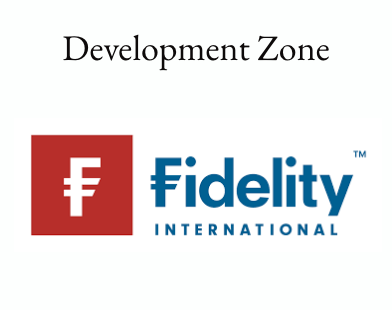Ben Peters, co-manager of the IFSL Evenlode Global Income fund, explains the fund’s focus on total returns and growing income streams. He shares how certain sectors, including consumer goods, healthcare, and information technology, provide resilient investment opportunities. The FundCalibre team also discuss Ben’s views on navigating market volatility, maintaining conviction during underperformance, and finding hidden value in high-quality companies.
Why you should listen to the interview: Discover how to balance risk and opportunity in today’s volatile market, with practical tips on investing in high-quality, cash-generating companies. Learn about the future impact of AI and how to capitalise on long-term growth opportunities.
This interview was recorded on 3 October 2024. Please note, answers are edited and condensed for clarity. To gain a fuller understanding and clearer context, please listen to the full interview.
Interview highlights:
What we’re trying to achieve
“With the Evenlode investment approach, we’re looking to deliver good total returns to our clients through time. For our income focused strategies that really is about delivering a growing income stream to our clients. And certain types of companies are able to do that.
“So we look for companies where they generate a lot of free cash flow from their operations and then can use some of that to pay a growing dividend through time. So that’s really our focus and that leads us to invest in certain sectors and not invest in other sectors. So therefore the fund is quite different to the market and some of the sectors where we find companies that we think can consistently deliver dividend growth through time are, you’ll find them in the fund.
“So consumer goods, healthcare, information technology, an interesting one at the current time. Where we don’t find so many of these types of companies are in some quite big areas of the market. So energy, particularly oil and gas is one. Banking, insurance is another. And it’s really important to say that we’re not saying you can’t make money investing in those companies at the right time, if you know what you’re doing. It’s just for our strategy and for our core aim of dividend growth we prefer to look elsewhere.”
The best opportunities today
“So the biggest sector is consumer goods. It’s pretty diversified under that. So we’ve got anything from sort of day-to-day essentials from a company like Unilever or P&G through to luxury goods in LVMH. So it’s pretty diversified, but actually that’s a sector where we do see good value. We see steady growth. It is a sector where we get a bit more yield today. So you are looking at yields of typically 3% to 4% in that sector but with some pretty steady returns under the bonnet there.
“Healthcare is another area where we see good value. And that’s a similar sort of dynamic in terms of being quite, I suppose, “defensive” in its characteristics as in not very exposed to the economic cycle, but where we also see good valuations.
“And then one of the bigger areas for us is what gets called as industrials, but for us it’s really business service companies. And in there you find companies more like business to business media companies.”
The prospects for AI
“I think that when it comes to artificial intelligence, it’s an amazing technology, isn’t it? I mean, if we are sitting in doing this podcast in 20 years time, we will be using artificial intelligence tools absolutely, no doubt. And the way that we’re using them, I would imagine we can’t even conceive of right now. So, I think that the future is bright for AI.
“I think that there is a near term opportunity for some companies; Microsoft is investing very heavily. So we’re actually looking at that, and there’s a sort of a bit of a shift in its business model, so it’s now spending a lot more on capital expenditure. I think that for Microsoft itself it can choose to do that. If it doesn’t see the customer demand, then it can slow that down very easily.
“And I think this is the main thing around artificial intelligence. It’s certainly there, it’s a very useful technology probably. I think that actually the monetisation of that technology remains to be seen how that exactly happens. Just like in the early days of the internet, it took a while for people to figure out exactly what the business models were that were gonna make money. I think it’s gonna be exactly the same with with artificial intelligence.”
Remaining steadfast to the process
“I think running a strategy which is different to the market, sometimes the strategy is going to outperform in market terms. So the market participants, whoever they are, other investors, short term traders, whatever, it’s going to go with the flow. And then sometimes conversely, the excitement is going to be elsewhere. But you know, it’s been fair to say there’s been some very, very big movers in the market there that we haven’t owned.
“So how do we sort of deal with that? Well, first of all, I think it’s important that we understand that’s going to happen ahead of time and understand why it is that we invest in this way. This is equity investment and one doesn’t get a return without risk, but we manage that risk and we think that by doing that, we can execute this through thick and thin for the long term. So making sure that the underlying economics of the businesses make sense is really, really important. Are these companies growing? Are they dealing with the volatility that there is in the world? Are the cash flows coming through? Is the dividend growth coming through? Asking really basic question for our strategies. Is the dividend growing and is that backed by solid business fundamentals, solid business performance?
“And we do evolve the portfolios through trying to manage valuation risk in the market as well. And sometimes we change our minds on companies where we feel like the investment case has changed. That might be due to some news flow or maybe we’ve done some more research. But, we are always open-minded about companies, but as long as we’ve done that work, we can see the performance going through in the companies and then ultimately for very importantly for our income strategies, the dividend is growing, then that’s the thing. They’re the things that we can control. And that’s what we do.”
Conclusion: The key takeaway is the importance of focusing on long-term, resilient investment strategies, particularly in sectors offering sustainable dividend growth. While market volatility and global uncertainty are constant, patient investors can find value by sticking to quality companies with strong fundamentals.
Main image: nicole-geri-eUyNYtwN0tA-unsplash

































